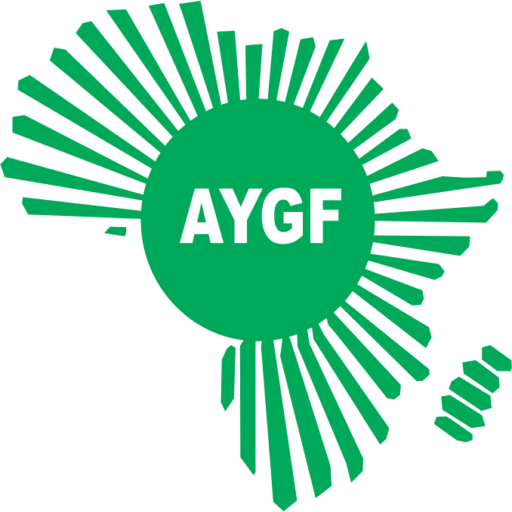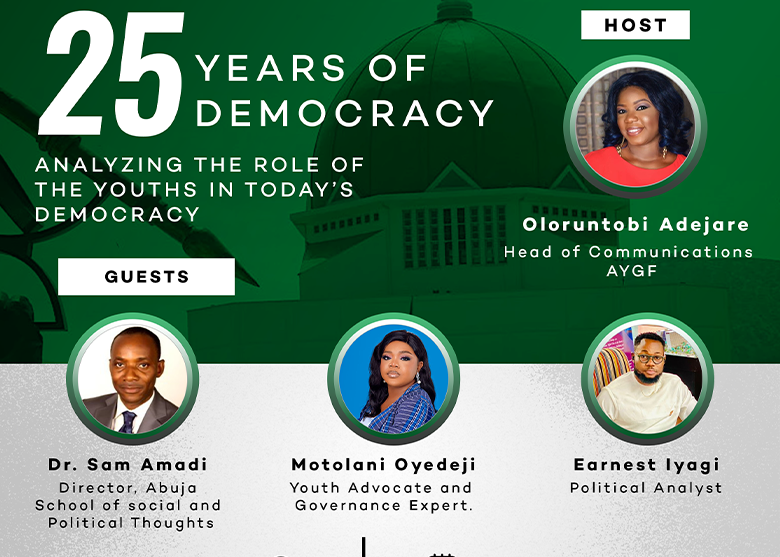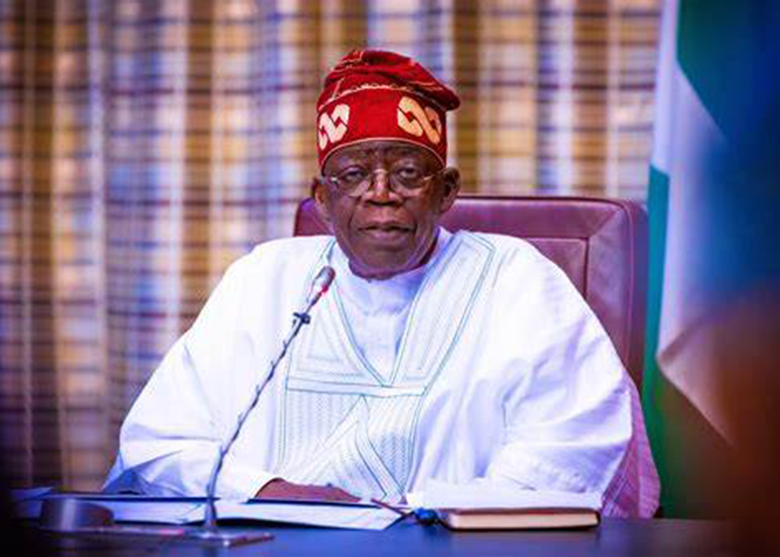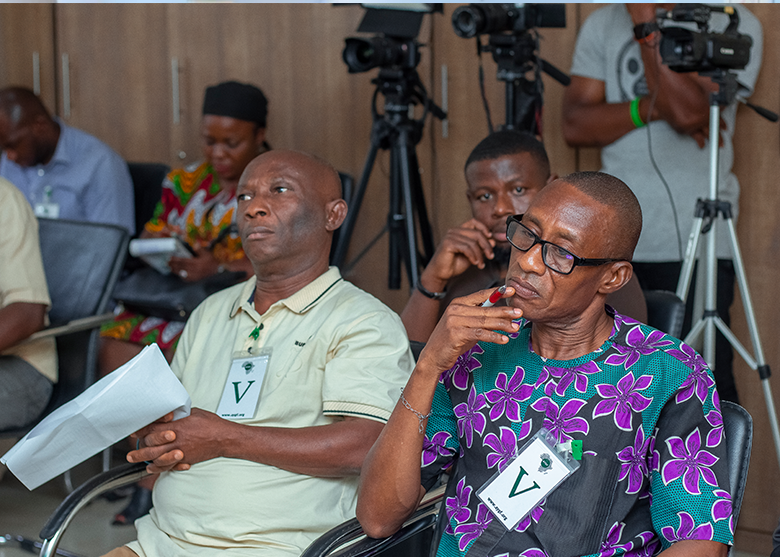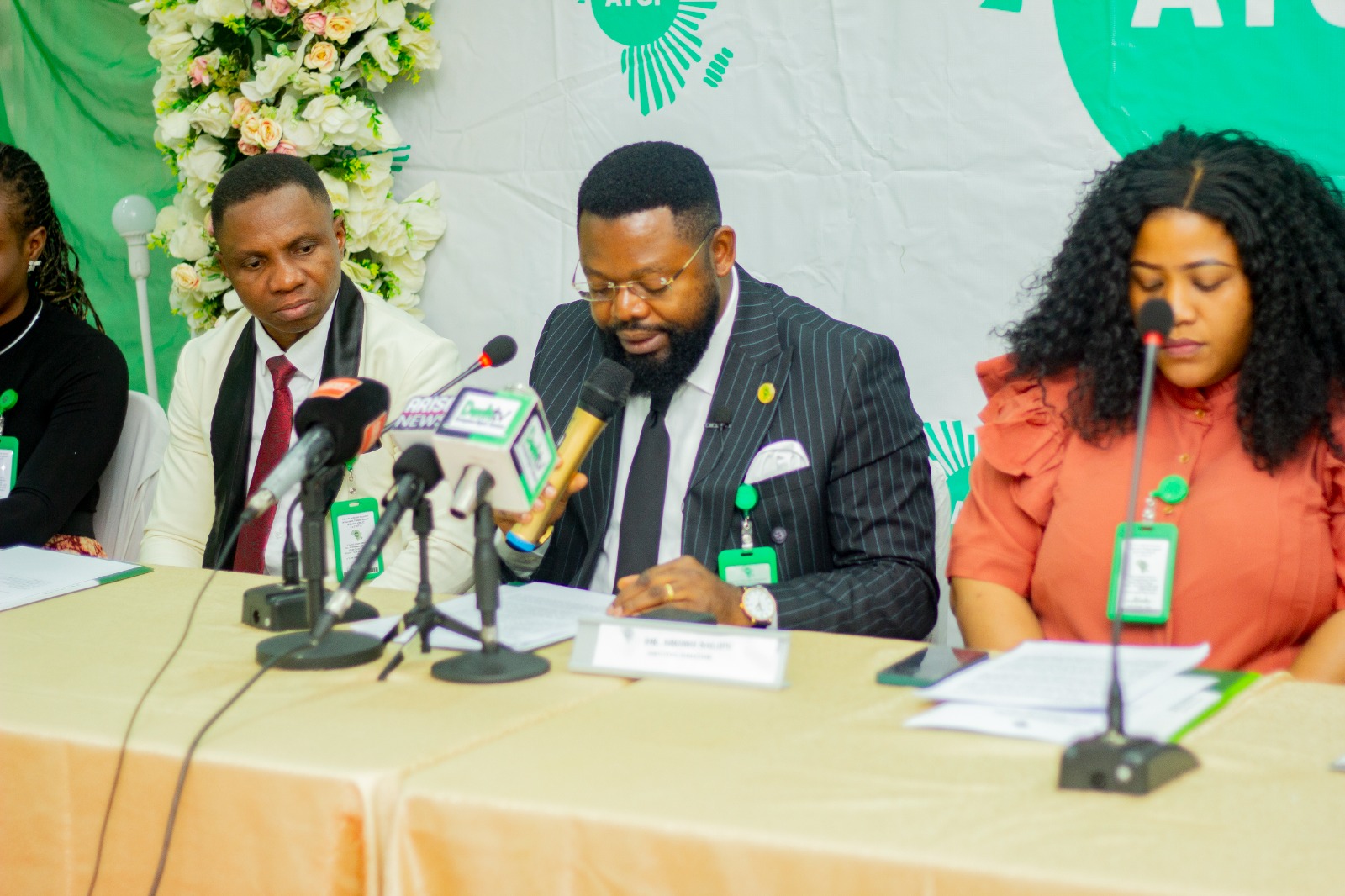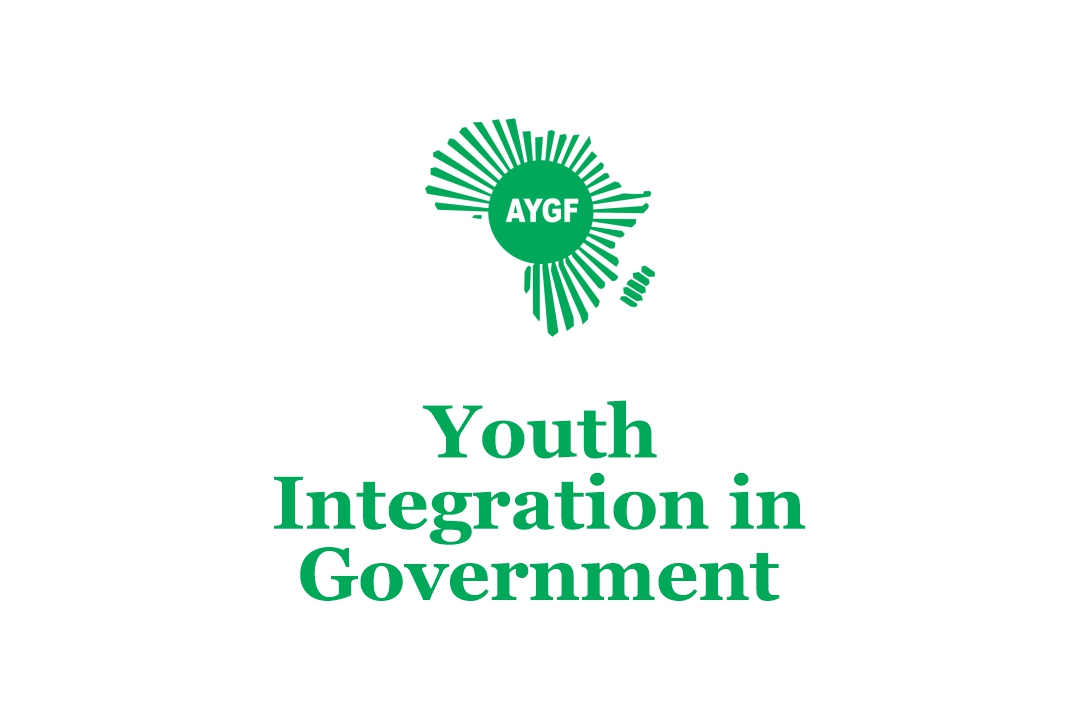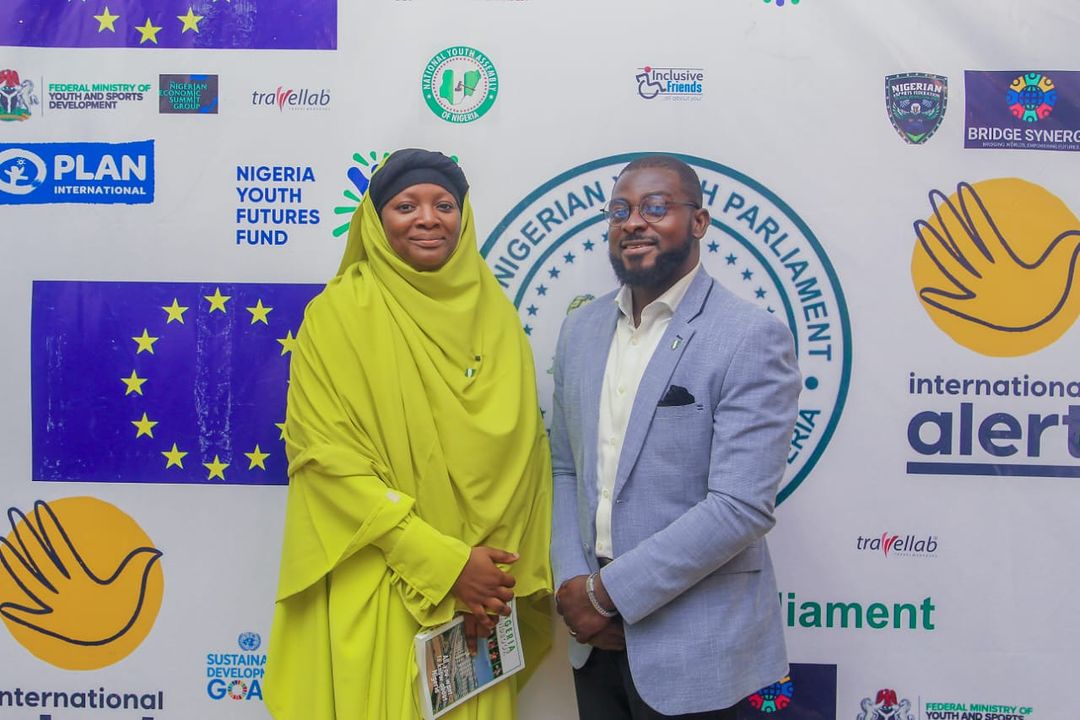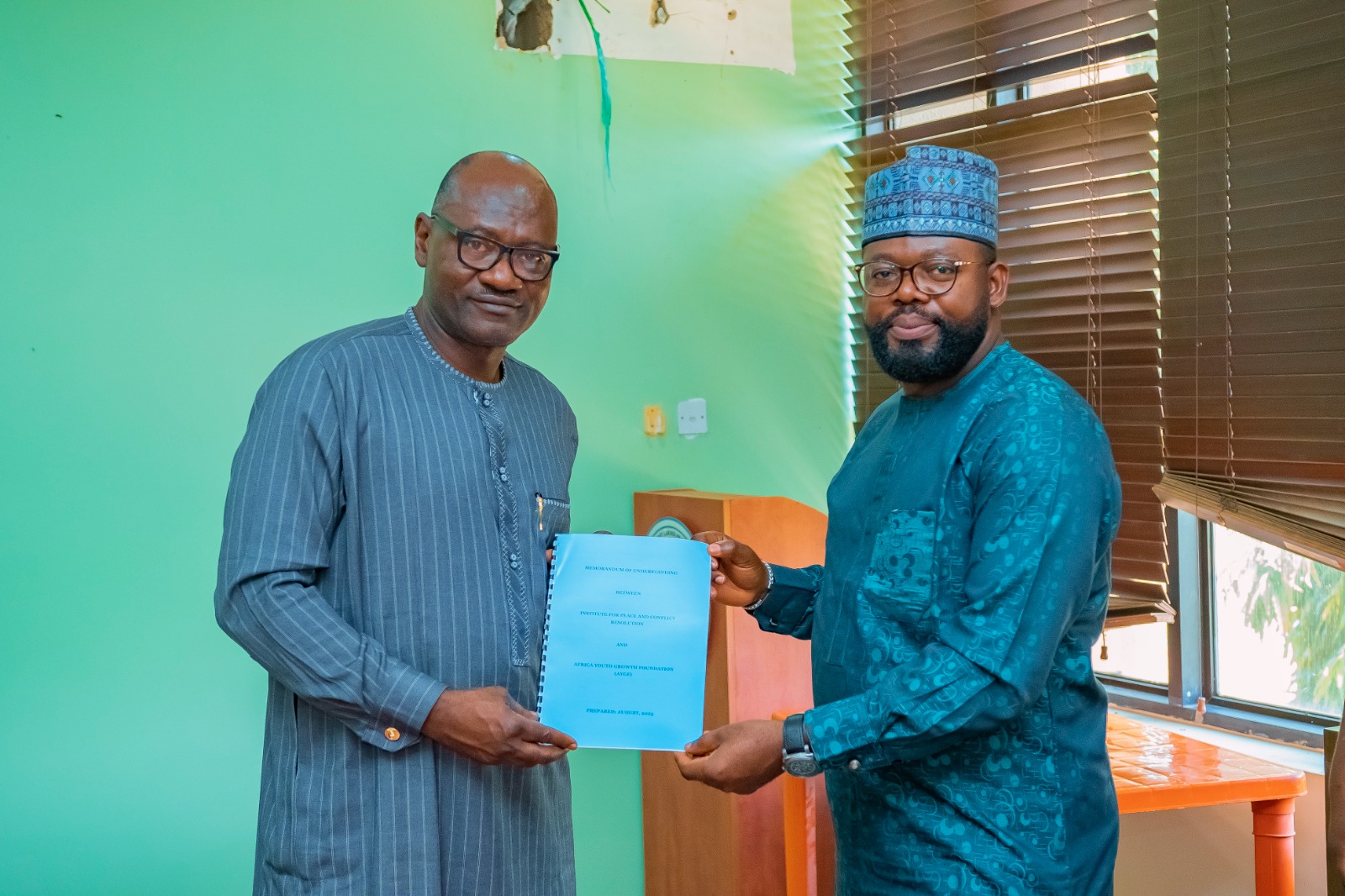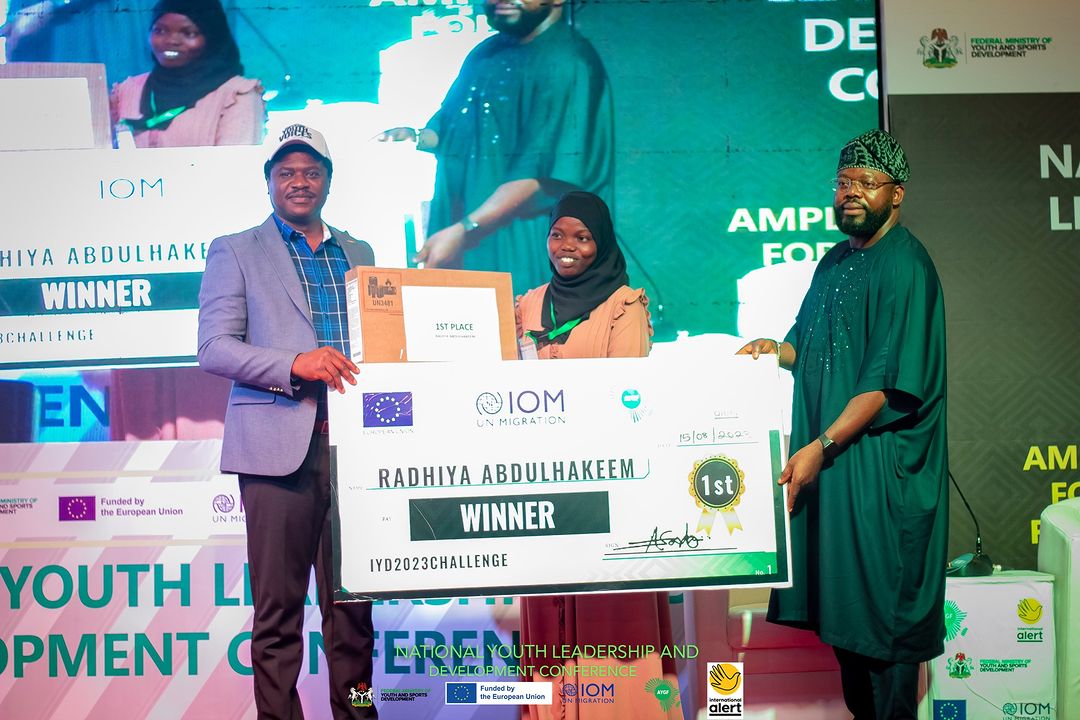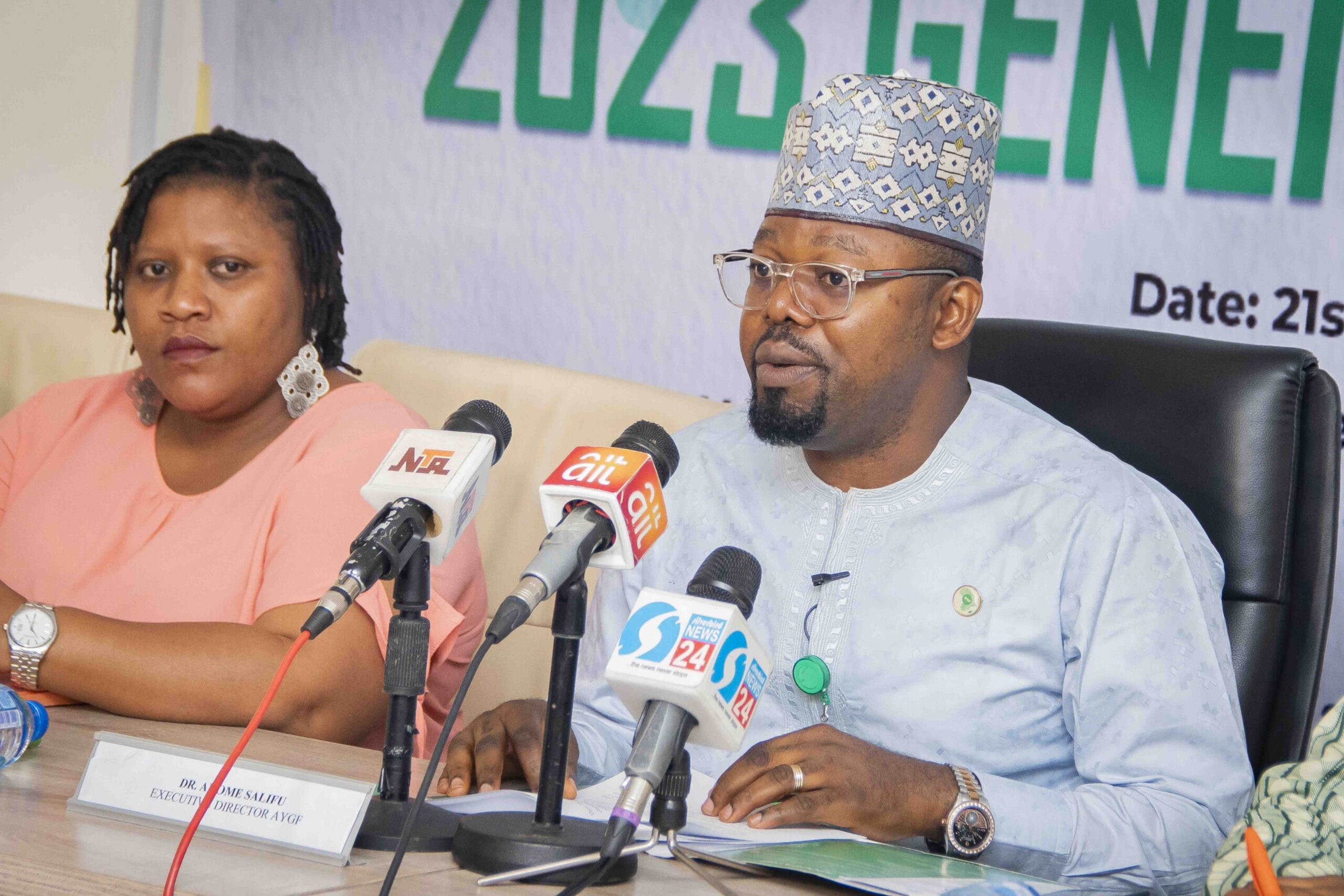To commemorate 25 years of Nigeria’s Democracy, we hosted a Twitter Space themed “25 Years of Democracy: Analysing the Role of the Youths in Today’s Democracy.” The event featured esteemed speakers such as Dr. Sam Amadi, Director of the Abuja School of Social and Political Thoughts; Motolani Oyedeji, Youth Advocate and Governance Expert; and Earnest Iyagi, a Political Analyst. The session was hosted by AYGF’s Communications Manager, Oloruntobi Adejare. With over 100 participants in attendance, the speakers delved into the current state of democracy in our society, examining its successes and failures, the challenges it faces, and reflecting on past obstacles. We hope you join our next space in July as we continue spotlighting and X-raying more development issues.
PRESIDENT BOLA AHMED TINUBU: FIRST YEAR IN OFFICE
As President Bola Ahmed Tinubu marks the first anniversary of his tenure as President of Nigeria, the nation reflects on a year marked by significant changes and challenges. Tinubu’s administration has been characterized by a series of impactful decisions, some of which have sparked controversy and others aimed at long-term reform. Here, we highlight key events from his year of governance, encompassing achievements and difficulties. One of the most consequential decisions of Tinubu’s presidency was the removal of fuel subsidies. This move, aimed at reducing government expenditure and redirecting funds to more critical sectors, has had a profound impact on the economy and the daily lives of Nigerians. While it alleviated the financial burden on the government, the removal led to an immediate increase in fuel prices, which has been met with significant public discontent. The decision underscores Tinubu’s commitment to fiscal reforms, albeit with the challenge of managing the socioeconomic fallout. The Tinubu administration has also navigated a turbulent exchange rate environment. The value of the naira has depreciated significantly against the dollar, driven by various factors including the global economic climate and internal fiscal policies. This increase in the dollar rate has intensified inflationary pressures, making imports more expensive and impacting the cost of living. Businesses and consumers alike have felt the strain, prompting calls for more robust measures to stabilize the currency and protect the economy from further shocks. In a bid to regulate the burgeoning digital economy, Tinubu’s government imposed a cap on cryptocurrency trading. This decision was framed as a measure to curb financial crimes and ensure economic stability. However, it has also stifled a growing sector many young Nigerians see as the future of any thriving economy. The cap drew mixed reactions, with some praising the government’s caution and others criticizing it for stifling innovation and economic freedom. Amidst the economic challenges, one of the notable positive initiatives has been the introduction of Nigerian student loans. This program aims to increase access to higher education by providing financial support to students. It represents a significant step towards educational reform and investment in human capital. The long-term success of this initiative will depend on its implementation and the ability to ensure that the loans are accessible to the students who need them most. Perhaps the most pervasive issue of Tinubu’s first year has been the increase in the cost of living. Inflation has soared, affecting the price of basic goods and services from food to transportation. The average Nigerian family has found their budget stretched thin with the situation partly a consequence of the removal of the fuel subsidy and the devaluation of the naira, among other factors. The administration faces the daunting task of curbing inflation and alleviating the economic pressures on its citizens. As President Tinubu’s administration crosses the one-year mark, the nation stands at a crossroads with many uncertainties on what to expect in the coming years. Moving forward, the effectiveness of Tinubu’s policies will be judged by their ability to foster sustainable economic growth and improve the standard of living. The journey ahead remains complex and uncertain, but the decisions made in this inaugural year will have lasting impacts on the future of Nigeria.
Why a Free Press is Our Lifeline in the Face of Environmental Crisis: AYGF Marks World Press Freedom Day
Established by the United Nations General Assembly in 1993, Press Freedom Day commemorates the freedom of the press and pays homage to journalists who have sacrificed their lives in the line of duty. Celebrated every 3rd of May, World Press Freedom Day commemorates the Windhoek Declaration, a cornerstone document advocating for free press and independent journalism. Journalists encounter significant challenges in seeking and disseminating information on contemporary issues, such as supply chain problems, climate migration, extractive industries, illegal mining, pollution, poaching, animal trafficking, deforestation, or climate change. This year, World Press Freedom Day is dedicated to the importance of journalism and freedom of expression in the context of the current global environmental crisis. Ensuring the visibility of these issues is crucial for promoting peace and democratic values worldwide. Local and international journalists play a vital role in exposing the harsh realities of the environmental crisis. They act as watchdogs, promoting peace and democratic values while ensuring the protection of vulnerable communities, particularly women and girls, who are disproportionately impacted by climate change. Misinformation surrounding environmental issues can be detrimental. It can hinder public support for climate action, weaken effective environmental policies, and leave vulnerable communities exposed. Accurate, timely, and comprehensive reporting on environmental issues and potential solutions is vital to achieving sustainable development. However, ensuring a free press requires action: Preventing and protecting journalists from violence and intimidation. Upholding the right to freedom of expression, scientific research, and access to information. Combating misinformation through responsible journalism. Over the years in Nigeria, the press has faced peculiar challenges that make it difficult for journalists to practice their profession freely and without fear. Journalists in Nigeria are frequently subjected to harassment, intimidation, and violence, especially when they report on sensitive issues like corruption, human rights abuses, insecurity, and climate issues. In some cases, journalists have been arrested, detained, and tortured for doing their job. The Nigerian press also faces economic challenges as many media organisations need help to stay afloat in a difficult economic environment such as is prevalent in the country presently. This has led to a decline in the quality of journalism, as media organisations prioritize revenue generation over quality reporting. Many journalists are also poorly paid and lack access to training and resources to improve their skills. It is important, that the welfare of the media considering the risk they take in the line of duty should be of utmost importance at all times as the fourth estate of the realm. Also, Promoting Media and Information Literacy programs is crucial for the development of any nation especially in the face of misinformation and disinformation. These programs equip users with the skills to critically evaluate information in the digital age, further supporting a free and informed public. A free press is not a luxury in the face of the environmental crisis; it’s a lifeline. By supporting a free press, we empower journalists to expose environmental threats, hold authorities accountable, and pave the way for a sustainable future. To achieve sustainable development, journalists must report accurately, timely, and comprehensively on environmental issues and their consequences, as well as on possible solutions. Let’s celebrate World Press Freedom Day by advocating for a free press and media literacy – it’s our planet’s future at stake.
AYGF Calls for Collaborative Action to Address Nation’s Insecurity and Economic Woes.
Africa Youth Growth Foundation has called for concerted efforts by the government, security agencies, civil society, and other relevant stakeholders to address the state of insecurity and the unstable economy. Speaking at the AYGF 2024 Annual Retreat, the executive director Dr. Arome Salifu noted that for more than a decade, Nigeria has been plagued by unprecedented occurrences of violence, crime, and insecurity. In recent years, the rise of herders-farmers clashes has been notable, with Benue State at the center experiencing the deadliest attacks. Disputes over land and resources, intensified by climate change and the spread of the Sahara Desert, have also led to violent conflicts resulting in numerous casualties. The attack in Plateau state earlier in the year also further highlights the urgent need for intervention and resolution in these communal conflicts. In 2022, the Islamic State West Africa Province (ISWAP) continued to operate and control territory, facing setbacks from the military’s counter-insurgency campaign and infighting with Boko Haram. The North West witnessed deadly raids and kidnappings for ransom by various bandit groups, adding to the complexity of the security situation. The Middle Belt region, characterized by conflicts between pastoralists and farming communities, contributed to over 57% of reported civilian fatalities. These challenges emphasize the necessity for a comprehensive and strategic approach to address the root causes of insecurity. Nigeria’s southern states faced occasional outbreaks of violence, including banditry, cultism, and increasing electoral violence. The South East witnessed an intensified separatist insurgency by the Indigenous People of Biafra (IPOB), leading to attacks against security forces and electoral officials. The proliferation of local security outfits, while praised for assisting federal security forces, raises concerns about accountability, human rights abuses, and alleged collusion with local political elites. Notably, Nigeria was cited as one of the most violent countries in Africa, with an increase in political violence events and approximately 3,900 fatalities resulting from violence targeting civilians. The North West and the Middle Belt regions accounted for two-thirds of overall civilian fatalities, emphasizing the need for concerted efforts to address violence against civilians nationwide (ACLED – Armed Conflict Location & Event Data Project) Dr. Arome Salifu further noted that the issue of kidnapping, particularly the abduction of schoolchildren, poses a severe threat to families in Nigeria. Over 1,000 students have been abducted since December 2020 with the kidnapping industry expanding into previously safe areas. Barely a week into the New Year, Five sisters were abducted by gunmen in Abuja, the nation’s capital, with the eldest being executed despite the payment of the ransom provided. In another case, 30 people were abducted along the Abuja-Kaduna highway at Dogon Fili in northwestern Kaduna state. Mass abductions and kidnappings for ransom have been a nationwide problem for several years but kick-started in the new year at a rapid pace (DW, 2024). The need for effective measures to counteract this threat is evident, as it jeopardizes education, livelihood, and the well-being of rural and urban communities and citizens at large which are some of the thematic focus at AYGF. One could also fault the increase in crime and violence nationwide on the current state of the Nigerian economy as it has become unbearable, for the average Nigerian to get by financially and in all capacities, especially since the removal of fuel subsidy in June 2023. A decision that was aimed at redirecting funds towards public infrastructure, education, healthcare, and job creation by the newly elected (at the time) President Bola Tinubu. However, the decision resulted in a significant rise in transportation costs and food prices across the country, impacting the daily lives of Nigerians. Various critics noted that the decision would drastically increase poverty levels and disproportionately impact the most vulnerable sectors of society (Business Insider Africa, 2023) which was the case in the immediate aftermath. In addressing these challenges, AYGF made the following recommendations to the government, non-state actors, and stakeholders: Integrated Approach to Insecurity and Economic Development: Advocating for an integrated approach that addresses both the economic challenges and insecurity concurrently. The government should formulate comprehensive policies that synergize efforts to boost economic growth while simultaneously addressing security concerns. This might include increasing targeted investments in key sectors, such as agriculture and infrastructure, to stimulate economic development and create employment opportunities, thereby contributing to enhanced security. Strengthening Intelligence and Security Cooperation: The importance of strengthening intelligence capabilities and fostering collaboration among security agencies cannot be overemphasized. We recommend the establishment of a coordinated and intelligence-driven approach to counter insecurity, involving information sharing and joint operations both at local and national levels. Investment in Youth Empowerment and Skill Development: Increased investments in youth empowerment programs and skill development initiatives. The government should focus on equipping the youth with relevant skills for employment and entrepreneurship. This approach not only addresses economic challenges by fostering a skilled workforce but also mitigates the risk of youth involvement in criminal activities due to unemployment. Transparency and Accountability in Economic Management: The government should communicate openly about economic policies, budget allocations, and resource management on all fronts. With more effective measures to curb corruption and ensure that financial resources are utilized effectively for sustainable development, fostering public trust and contributing to economic stability. Community Engagement and Conflict Resolution Mechanisms: Community engagement and the establishment of effective conflict resolution mechanisms are very crucial. The government and key stakeholders should foster dialogue between communities, address grievances, and promote understanding. Investing in community development projects and initiatives that address the root causes of conflicts can contribute to lasting peace and stability, thereby creating an environment conducive to economic growth. Government Action on Currency Crises and Support for Local Economy: Lastly, We urge the government to take decisive action on the crises surrounding the exchange rates of the naira and the dollar, as they significantly worsen Nigeria’s economic conditions through inflation. In tandem with this, we call upon Nigerians to support locally-made goods and services, contributing to the mitigation of these adverse effects on the economy. These recommendations collectively aim to address intertwined
Youth Integration in Government (Arise TV)
In this interview with @arisenewsofficial, AYGF’s Executive Director @aroech spoke on the need for the government @theasovilla and relevant stakeholders to prioritize the voice of the youth in policy decision making.
2023 International Youth Day
A thrilling moment at the 2023 International Youth Day Event organized by the Nigerian Youth Parliament@official_nyp1 !AYGF proudly represented, joining hands for positive change and empowerment. The theme ‘Youth Empowerment for Sustainable Development: Unlocking Potentials, Driving Change’ resonates strongly with our mission. Together, let’s unlock potentials and drive impactful change for a brighter future.
AYGF and IPCR MOU
AYGF signs a new MOU with Institute for Peace and Conflict Resolution @ipcr.ng. This marks a significant step towards collaboration in peace building and conflict resolution. Together, we aim to build bridges, break down barriers, and pave the way for a brighter and more harmonious future.
AYGF Youth Challenge
An unforgettable moment at the National Youth Leadership and Development Conference was the presentation of gifts to our Top 3 Winners of the AYGF Youth Challenge. The participants experienced an exhilarating moment, with the room resounding in applause. Congratulations to every participant, once again!
European Union Support to Democratic Governance in Nigeria (EU-SDGN)
On Monday, the 12th of September 2022, The European Union delegation to Nigeria and ECOWAS in Coordination with the Independent National Electoral Commission (INEC), organised an event to formally close the first phase of EU’s flagship democracy support to programmes in Nigeria and launched the second phase, which is expected to be implemented from 2022-2027. The closing event served as an opportunity to learn from EU’s democratic support to Nigeria which allowed attendees get insights into the plans for the second phase. The event was held at the International Conference Centre (ICC) Abuja, Nigeria. During the event, a good will message was presented by the European Ambassador to Nigeria and ECOWAS, Ambassador Samuela Isopi and Prof. Mahmood Yakubu Chairman, Independent National Electoral Commission (INEC). There were two panel sessions, the first was on EU-Support to Democratic Governance in Nigeria-SDNG’s contribution to Nigeria’s Democratic Consolidation, the discussants were; Mr. Jake Epelle, CEO Albino Foundation, Dr. Musa Umar, National Insyitute of Peace and Strategic Studies, Ms. Brenda Nwosa, Programme Officer, Policy and Legal Advocacy Centre (PLAC), Mr. Arogundade, Executive Director, International Press Centre., Chigozirim Okoro, Programme Manager, CLEEN Foundation and Manji Wilson, Deputy Project Coordinator, European Centre for Electoral Support (ECES) who moderated the session. The second session was on the Challenges and opportunities for a credible 2023 General election in Nigeria, the discussants were; Prof. Attahiru Jega, Former Honourable Chairman, INEC, Prof. Anthonia Simbine, Former National Commissioner, INEC, Dr. Joe Abah, Country Director, DAI, Ms. Cynthia Mbamalu, Head of Programmes, Yiaga Africa, Fr. Atta Barkindo, Head of secretariat, The National Peace Committee and Mr. Seun Okinbaloye, Channels TV who moderated the session. AYGF was ably represented by its Head of Programmes, Patricia Akor.
Press Conference On 2023 General Elections
AYGF in her premise of Democratic governance, and ahead of the 25th February, and 11th March general elections, held a press conference to state her expectations of the organization and call on critical stakeholders to address the need for a credible and peaceful elections. The Executive Director, Dr. Arome Salifu delivered a thought provoking and compelling speech which charged the youths to vote for the growth and development of Nigeria. He said “The general election is an opportunity for citizens to choose a leader with solid determination to steer the direction of the country positively” He made a call on security agencies on the need to prioritize the security of the electorates particularly, the members of the National Youth Service Corps (NYSC) who are providing support to the process. He further called on INEC, on the need to maintain neutrality and avoid anything that will jeopardize the process. The Press Conference was held at the AYGF Board Room, and had in attendance a dozier of reputable media practitioners from different media houses which include: NTA, Silverbird TV, AIT, Kiss FM, FRCN, Blueprint Newspaper, The Nation, NAN, Daily Trust, PUNCH Newspaper, Guardian, The Sun and Vanguard Newspaper. As we go to the polls for the elections, it is our hope in AYGF that Nigeria will experience a peaceful and credible 2023 elections.
